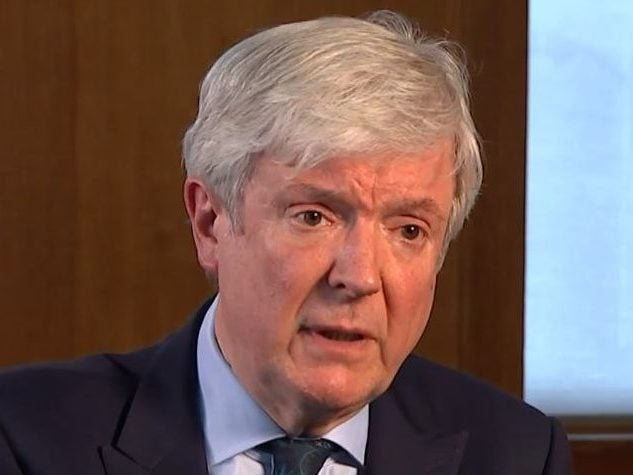
BBC News must be strengthened in order to “help counter the global democratic deficit” and push back against fake news, BBC director-general Tony Hall will say tomorrow.
Lord Hall will also raise the possibility of regulation to “rebalance” the media landscape between the global tech giants and the UK media industry in a speech at the Royal Television Society’s conference in London tomorrow.
Lord Hall is set to address how the BBC intends to respond to the “big shift” happening in the media industry which he says is characterised by the rapid rise and domination of US tech giants including Facebook, Google and Apple, alongside the shift in habits of younger audiences.
He will say the BBC must accelerate its response to the “big shift” in five key areas, including BBC News.
“We must help counter the global democratic deficit. The plague of disinformation and fake news needs to be challenged not just in the UK, but globally,” Lord Hall will say.
“We need a strong BBC to push against fake news and hold those who produce it – at home and abroad – to account. BBC News is trusted across the globe. Sustaining and building on this has to be a priority for our country.”
The BBC must also “spend and do more” outside London to “truly reflect the whole of the UK in our output”, Lord Hall will say.
This will mean more money spent around England and the nations, with more staff based outside London.
“The BBC’s move to Salford was a game-changer in its time – ten years on the success of Salford is something that we need to build on,” he will add.
The BBC must also spend more on the “highest-quality content”, keep “reinventing” its online services, and invest more in children and young adults, Lord Hall will announce.
In terms of regulation, Lord Hall will say Britain “also needs to do more to support the broader public service broadcasting ecology”.
“It cannot be right that the UK’s media industry is competing against global giants with one hand tied behind its back.
“In so many ways – prominence, competition rules, advertising, taxation, content regulation, terms of trade, production quotas – one set of rules applies to UK companies, and barely any apply to the new giants.
“That needs rebalancing, too. We stand ready to help, where we can.”
A letter signed by the broadcasters called for regulatory oversight to be “urgently” brought in, suggesting a new watchdog be created to tackle the growing presence of harmful misinformation online.
Lord Hall will conclude by saying the BBC can “do more” for Britain.
“Despite the challenges, I have huge confidence in the BBC and its future. We know we can do more for Britain.
“Investment in great content that supports the creative economy. World-class online services. More for children and young adults. Trust and accuracy in news. More outside London.
“The country needs a strong creative economy. Our society needs a strong upholder of truth. Are we as a country willing to give our media and the BBC the support they need? In short, the big shift is here and it’s happening. We all need to move with it.”
Picture: Channel 4 News
Email pged@pressgazette.co.uk to point out mistakes, provide story tips or send in a letter for publication on our "Letters Page" blog
